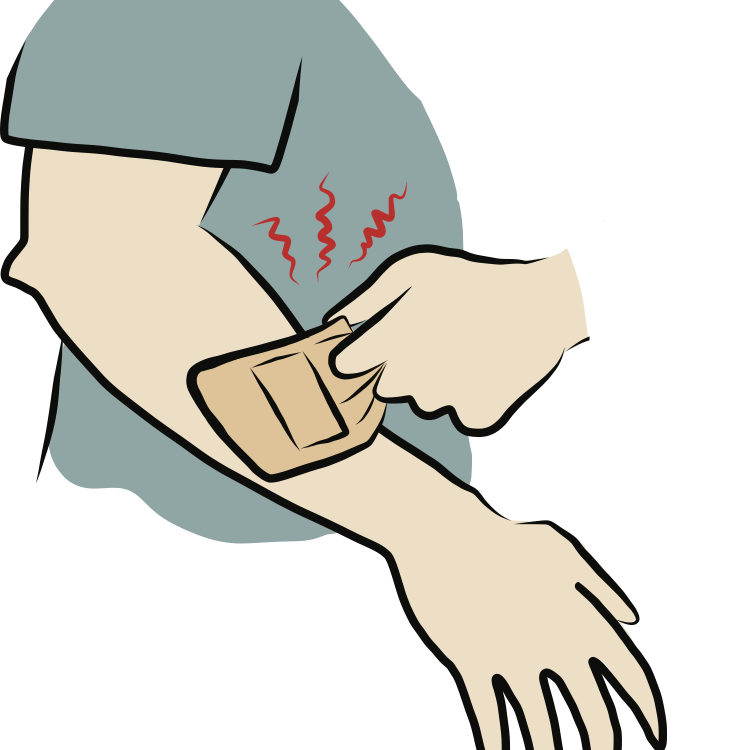How to Avoid Vendor Fraud

Call me paranoid. But, one of the mottos I swear by is “fraud happens.”
That might make me come across as to skeptical of an individual. However, I learned a long time ago that there are a lot of shady people out there trying to scam you.
Case in point, a natural disaster like a hurricane, tornado, or wildfire has devastated your home or business. Understandably, this is soul-crushing. And, you’re so desperate to return to normalcy that you’ll do just about anything.
Scam artists are completely aware of this. These nefarious individuals will then use your misfortune to their advantage by overcharging you or cutting corners. While they’re lining their pockets, you’ll be left to clean up their mess. As a result, you’re not only losing valuable time and money, you might also have to deal with compliance, risk, and legal issues.
The good news? You can bring vendor fraud to a screeching halt and show these scammers you’re not playing around by taking the following seven measures in advance.
Know the types of fraud.
Your first line of defense against vendor fraud is to familiarize yourself with the various types of fraud. Usually, this boils down to the following examples;
- Billing schemes. Here the fraudster would submit a false invoice so that you end up paying a shell or dummy company. Other examples would be when the vendor alters an invoice, like double charging you, or an employee who funnels money into their own personal accounts.
- Bribery and kickbacks. Did someone, such as an employee, refer you to the fraudster? They have done so in order to receive a kickback in return.
- Check tampering. This one is pretty straightforward. Someone, usually an employee, manipulates a check for their own benefit.
- Overbilling. Here a vendor pads the bill so that it’s much higher than initially quoted.
- Price fixing. In some cases, scam artists will band together to set a price range or similar pricing for goods or services. While this makes them look competitive, they can inflate the final price regardless of which vendor you choose.
Prevent and detect vendor fraud.
Know that you are aware of the most common types of fraud, let’s go over some of the most effective want to prevent and detect vendor fraud from the get-go.
- When hiring new employees, conduct a thorough background check.
- For vendors, always implement checks and balances on payments.
- Keep the functions of the check preparer and signer separate.
- Consider rotating the duties of employees in procurement.
- Randomly administer audits of vendor files.
- Utilize data mining to spot anomalies and concerning patterns.
- Cross-reference vendor employee addresses, phone numbers, and bank accounts to make sure that they aren’t the same.
- Put into action a dual review process for managing master vendor files.
- Double-check the vendor master file to make sure that the volume of billing is consistent.
- When setting up vendors, do your due diligence by verifying:
- Their business name
- Tax Identification Number (TIN) — it’s valid if it has nine digits with the first two digits separated by a hyphen
- Phone number
- PO box and/or street address
- Bank account
- Vendor contact person
- Checking for licenses and proof of insurance including personal liability, worker’s compensation, and property damage coverage
Learn how to spot fictitious vendors.
Next up? Learn how to verify that a vendor is reputable and legit. Generally, you can do this by;
- Finding out how long the vendor has been in business.
- Verifying their address by asking if it’s a mail drop, PO box, or residential address.
- Making sure that the company is not included on a list of approved vendors.
- Keep a lookout for suspicious invoices. This includes invoices without contact information, even dollar amounts, or no taxes added.
- If a bill contains vague or unnecessary products/services, flag it.
- Questioning invoices created via Microsoft Excel or Word invoice templates or have consecutive invoice numbers.
- Being wary of payments that supporting documentation, such as receipts.
- Making sure that employees are not the health or life beneficiaries to vendors
- Identifying vendors who have above-average revenues for investigation.
- Comparing names of vendors with other similar vendor names.
- Keeping an out for any drastic changes in prices, services, or products that a particular vendor has provided.
Ask for recommendations.
While there is a possibility that someone who refers you to a fraudulent vendor may be receiving a kickback, asking for recommendations remains a tried and true tactic for landing reputable and licensed professionals. The key is to rely on someone whom you trust, such as a friend, family member, or neighbor.
You should also take advantage of customer review sites, as well as consumer watchdog groups, to locate legit vendors. These include the Better Business Bureau, Thumbtack, HomeAdvisor, or Angie’s List.
It also wouldn’t hurt to conduct a quick Google search by entering “scam,” “rip-off,” or “complaint” plus the company name.
Hire local.
When possible, try to hire a local company. This way you can actually see with your own eyes if the business is on the up-and-up. And, if you have any questions, concerns, or miscommunication, you can meet the vendor in-person.
What’s more, local vendors are well aware of the area’s permitting and legal considerations, as well as who to contact to secure these documents.
Another advantage of hiring local? It boosts the local economy and community.
Always receive a signed contract.
It’s always recommended that you get estimates from a minimum of three companies. And, don’t forget to ask for customer references from each. That may sound excessive, but it will help alleviate vendor fraud.
Additionally, don’t skim the fine print. Make sure that you review everything with a fine comb, including all disclosures. This will help you go over the vendor’s past performance, what their areas of expertise are, and their professional reputation.
Finally, always secure a signed contract before any work begins. The contract doesn’t have to be the size of War and Peace. But, it should at least include the scope of work for your project.
The Federal Trade Commission also advises that contracts should also include the following details:
- the contractor’s name, address, phone, and license number (if required)
- an estimated start and completion date
- the payment schedule for the contractor, subcontractors, and suppliers
- the contractor’s obligation to get all necessary permits
- how change orders are handled. A change order is a written authorization to the contractor to make a change or addition to the work described in the original contract and could affect the project’s cost and schedule.
- a detailed list of all materials including each product’s color, model, size, and brand. If some materials will be chosen later, the contract should say who’s responsible for choosing each item and how much money is budgeted for it (this is also known as the “allowance”).
- information about warranties covering materials and workmanship, with names and addresses of who is honoring them — the contractor, distributor, or manufacturer. The length of the warranty period and any limitations also should be spelled out.
- what the contractor will and won’t do. For example, is site clean-up and trash hauling included in the price? Ask for a “broom clause” that makes the contractor responsible for all clean-up work, including spills and stains.
- any promises made during conversations or calls. If they don’t remember, you may be out of luck — or charged extra.
- a written statement of your right to cancel the contract within three business days if you signed it in your home or at a location other than the seller’s permanent place of business
Arm yourself with the right tools.
As you can see, it takes a lot of time and effort to avoid vendor fraud. But, isn’t there a more faster and efficient way to go about this?
Absolutely.
For example, there are a variety of address verification software options like Loqate and SmartyStreets. SoftCo can be used to help you detect invoice fraud. And, finally, there’s TrustLayer. It uses AI so that you can easily request, verify, and track vendor insurance in real-time.



